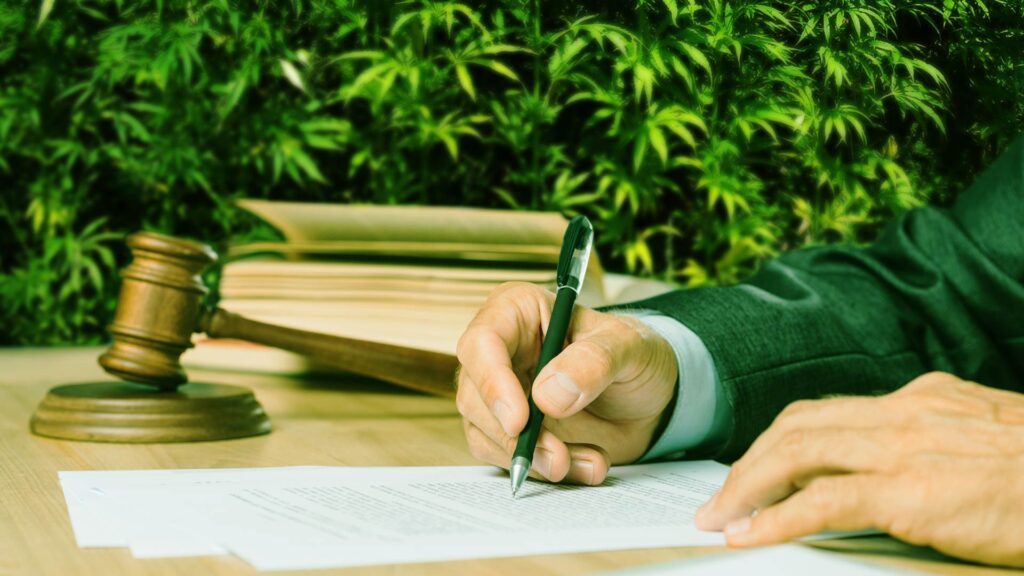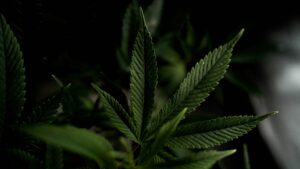On October 6, 2020, President Joe Biden issued a proclamation pardoning people convicted of simple marijuana possession under the Controlled Substances Act or the District of Columbia Code. While this may have come as good news to those with marijuana possession convictions, it’s important to understand what this pardon actually does—and doesn’t do.
Will Biden legalize weed? What exactly did the administration promise, and how does this affect non-violent drug offenders?
Let’s take a look at Biden’s stance on drug policy over the course of his career and whether or not he’s doing enough to push the needle on marijuana reform.
Biden’s Recent Announcements on Marijuana Pardons
In early October, President Biden pardoned thousands of convictions for possession of marijuana under federal law. This doesn’t apply to anyone convicted of sale and distribution, but rather excuses those who were found to be in possession of marijuana in varying increments.
This unconditional pardon affects over 6,500 Americans. Currently, there are no persons in prison for marijuana possession under federal law, but Biden’s pardons will impact other important aspects of the lives of those affected.
“Criminal records for marijuana possession have led to needless barriers to employment, housing, and educational opportunities. And that’s before you address the racial disparities around who suffers the consequences. While white, Black, and brown people use marijuana at similar rates, Black and brown people are arrested, prosecuted, and convicted at disproportionate rates.” – President Biden
Following his announcement, Biden pleaded with state governors to adopt similar efforts and pardon anyone convicted of marijuana possession by the state. A large majority of possession convictions occur at the state level.
Lastly, the president urged the Attorney General and the Secretary of Health and Human Services to further consider the details of the Controlled Substances as it pertains to marijuana. Currently, marijuana is regulated alongside LSD and heroin as equally dangerous and punishable under the same law. The president’s request was to reconsider the scheduling to determine whether or not rescheduling marijuana was appropriate at this time.
The Limits of Biden’s Marijuana Pardons
First, it’s important to note that the pardon only applied to U.S. citizens or legal permanent residents convicted of simple marijuana possession under the Controlled Substances Act or the District of Columbia Code. This means that no member of this group is still incarcerated. So while the pardon was certainly a nice gesture, it didn’t actually result in the release of any federal prisoners.
Second, the pardon didn’t expunge the underlying convictions at issue or clear anyone’s record. This is significant because it means that those who received a pardon are still considered convicted criminals on record—and will be for the foreseeable future.
So what does all this mean? Essentially, Biden’s proclamation was a symbolic gesture rather than an actual solution to the problem of unfair marijuana convictions. For those individuals hoping for a clean slate, they remain in a similar spot as they were prior to October 6th—convicted criminals whose records will follow them for years to come.
The Evolution of Biden’s Support of Drug Policy
President Biden is a career politician and has been directly involved with several drug policy initiatives over the last forty years. As a senator, Biden participated in the War on Drugs through several policies that led to the imprisonment of thousands of people. Here’s a glimpse at what they entailed.
Anti-Abuse Drug Act of 1986
In response to the crack epidemic reaching its peak in the mid-80s, senator Joe Biden crafted legislation that would enforce stricter penalties for drug-related crimes while simultaneously funding more drug treatment facilities. President Ronald Reagan signed it into law as the Anti-Drug Abuse Act of 1986.
Details included changing the mandatory minimum sentences to five years for any drugs related to crack, cocaine, heroin, methamphetamine, and cannabis within specific amounts. Instead of pushing for rehabilitation as the primary goal, the new law focused on harsher punitive measures.
2001 RAVE Act
Biden had it out for anyone participating in rave culture, including those using, producing, or selling club drugs ecstasy, and MDMA. In fact, Biden indicated that even rave promoters or owners of buildings where raves were held would be thrown in jail.
Senator Biden enacted the 2001 RAVE Act (Reducing American’s Vulnerability to Ecstasy) with the intention of harsh legal penalties for anyone connected with the rave scene would face legal punishment.
The Illicit Drug Anti-Proliferation Act of 2003
In 2003, Congress passed an act that was meant to amend the Controlled Substances Act. The primary goal was to educate the public, particularly parents and kids, on the dangers of club drugs. It was also geared towards increasing federal sentencing penalties for GHB, the substance known as the “date rape” drug.
In addition to cracking down on specific substances, the Illicit Drug Anti-Proliferation Act would hold accountable anyone who owned, rented, leased, or operated in any way a facility that was used for manufacturing illicit substances. Anyone profiting from—when knowingly or unknowingly—from controlled substances is subject to penalty.
Will Biden Legalize Weed?
While President Biden’s marijuana pardon was certainly well-intentioned, it ultimately fell short of providing any real relief for those individuals convicted of simple marijuana possession offenses. Without expunging their records or clearing their names, they remain in the same difficult position they were in before—unable to move forward with their lives without the stigma of a criminal conviction weighing them down. Here’s hoping that future pardons will be more effective in providing relief for those who have been unfairly burdened by our nation’s War on Drugs.
Ultimately, marijuana must be removed from the Controlled Substances Act altogether, and all non-violent ‘criminals’ serving time for cannabis-related crimes should be released from prison.
Will Biden legalize weed? It’s hard to say. His efforts could be a political ploy, or perhaps he is evolving beyond his former tough-on-crime legislation in the famously failed War on Drugs.






